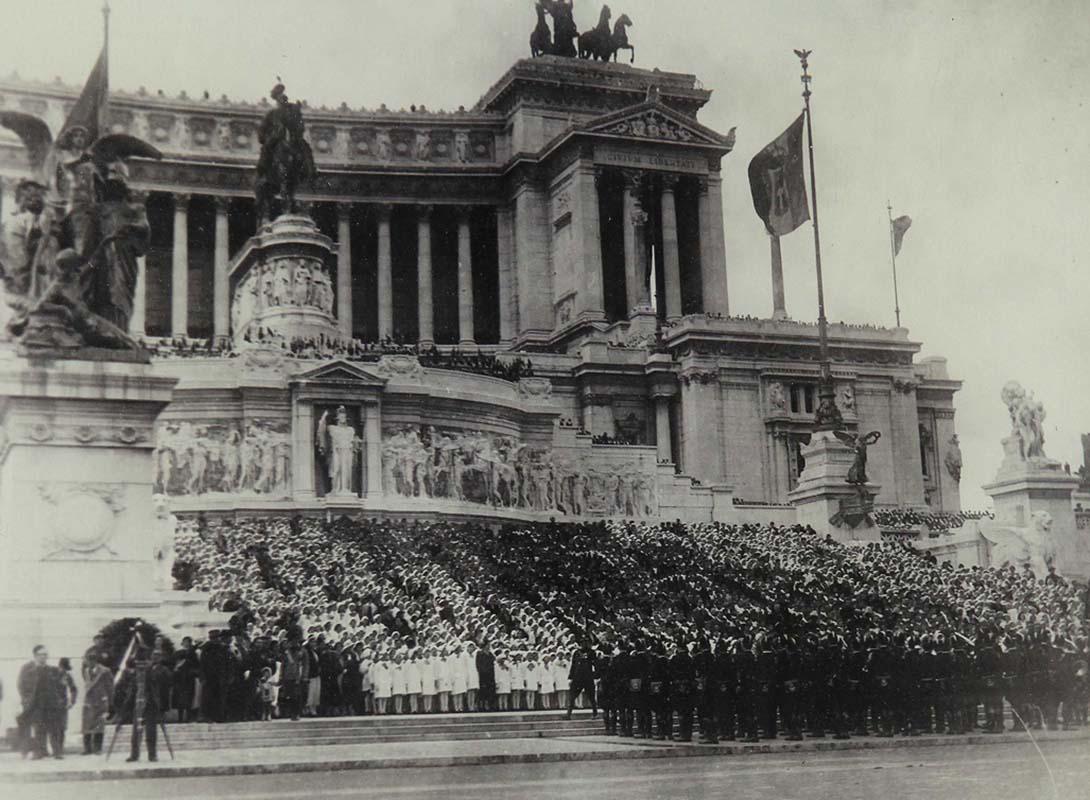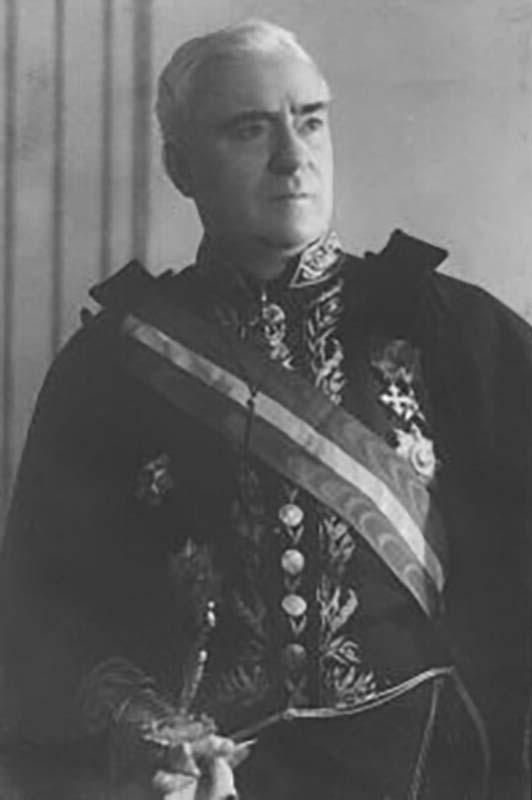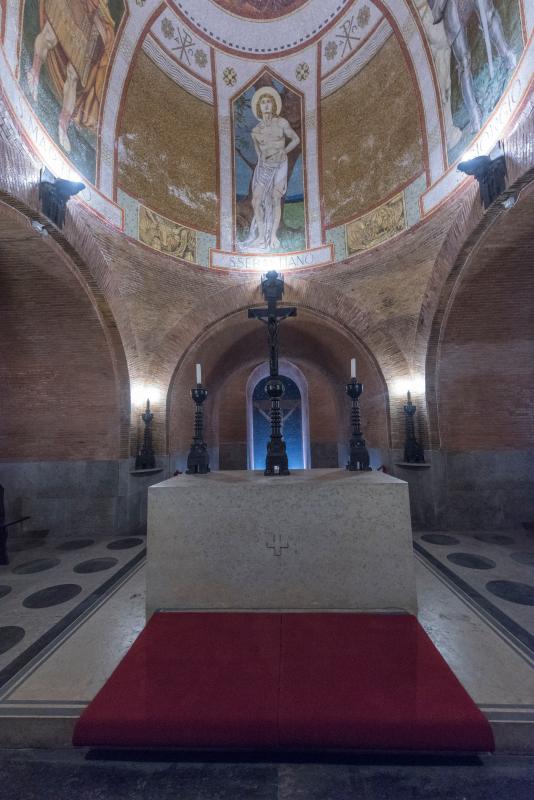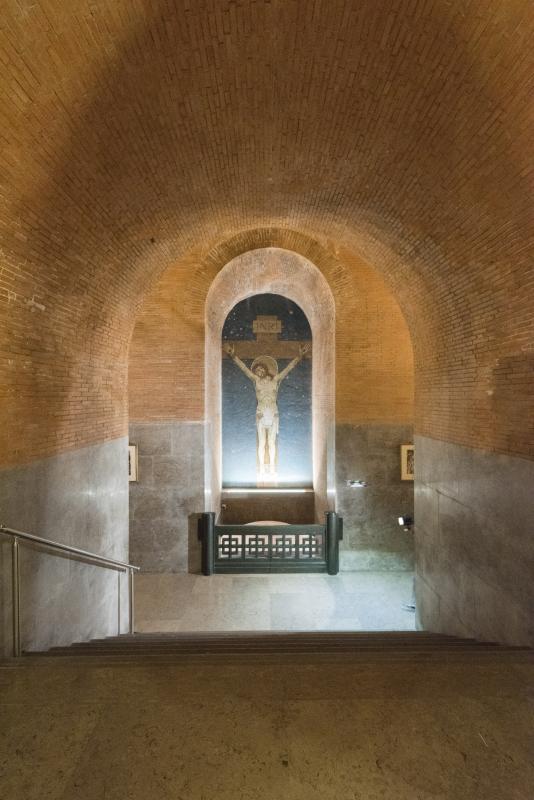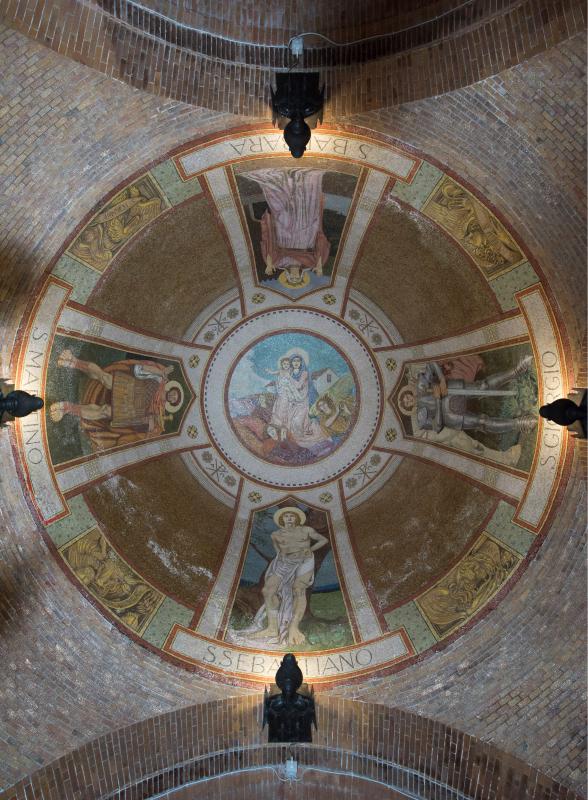The Altar of the Fatherland in the Fascist era and the arrangement of Armando Brasini
A cornerstone of the regime's propaganda, the Tomb of the Unknown Soldier takes on a double significance, both secular and religious
Starting with the March on Rome on 28th October 1922, the leader of the National Fascist Party Benito Mussolini paid special attention to the Altar of the Fatherland and the Tomb of the Unknown Soldier, transforming them into key tools of the regime's propaganda. Here, among other things, the main ceremony of the "Day of Faith" was held on 18th December 1935, as part of the campaign to donate Gold to the Fatherland.
On this basis, architect Armando Brasini, artistic director of the Vittoriano from 1924 to 1939. The artistic directorship of Armando Brasini), devoted considerable attention to the arrangement of the area. After having supervised the placement of the statue of the Goddess Rome by Angelo Zanelli in 1925, Brasini modified the architecture of the Altar of the Fatherland, conceiving a double use for the Tomb of the Unknown Soldier, both secular and religious.
Brasini made the Tomb of the Unknown Soldier accessible from two different perspectives, one outside, the other inside the Vittoriano: for the latter Brasini conceived a crypt and an altar. Thus, the architect offered a solution to the needs of those - in particular the widows and mothers of the fallen - who asked to be able to organise masses and other religious functions around the Unknown Soldier.

